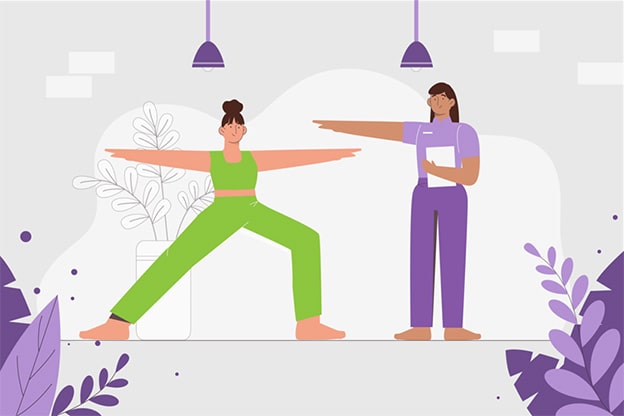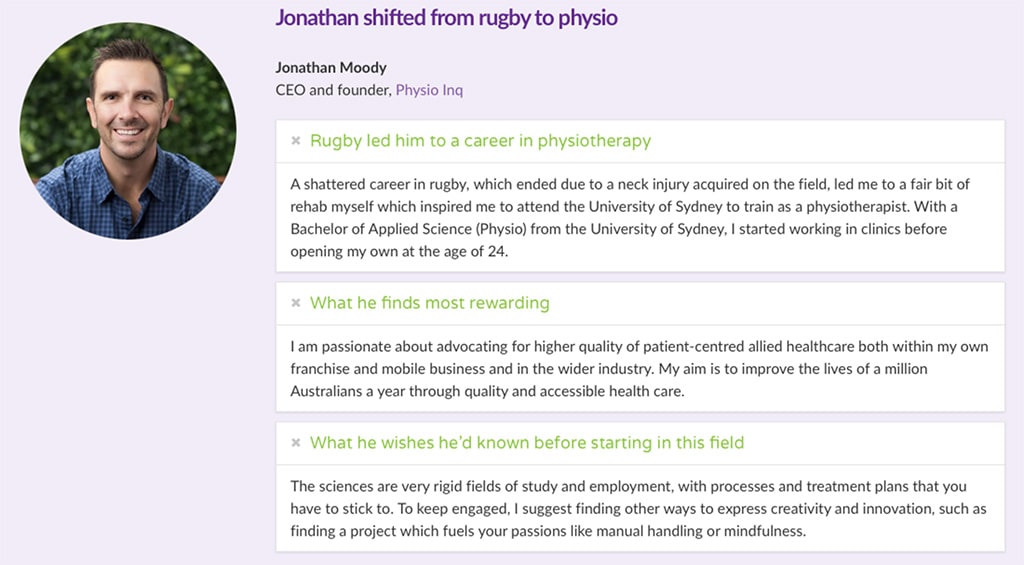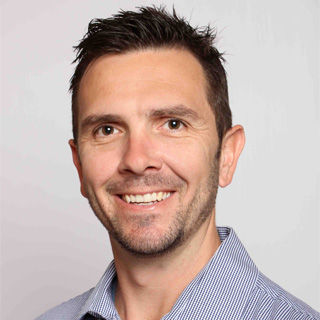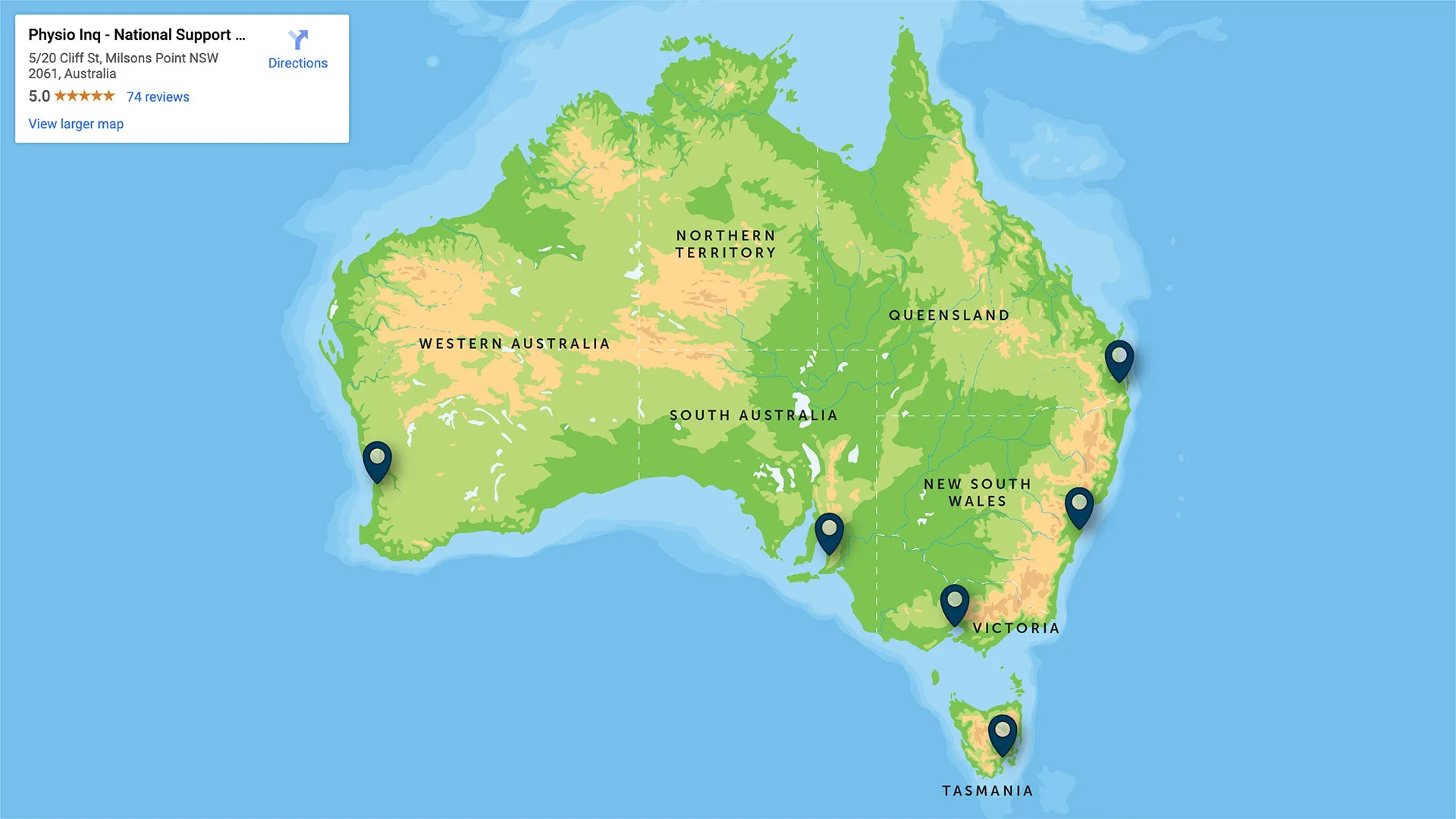Considering a Career in Allied Health But Don’t Know Where to Start?
Originally Published Jun 11, 2021
If you want to make a difference in peoples’ lives, a career in allied health is an excellent option. This rewarding career path enables you to work in the healthcare community, meet people from all walks of life, and help them along their healing journey.

Written by Adele Cochrane for Training.com.au
If you want to make a difference in peoples’ lives, a career in allied health is an excellent option. This rewarding career path enables you to work in the healthcare community, meet people from all walks of life, and help them along their healing journey.
Apart from being personally rewarding, these professions come with great pay, job security, and respect within the community — all with less demanding and rigorous training than you’d need to enter the medical professions.
- Over 195,000 allied health professionals in Australia
- They represent over 25% of the health workforce
- Between 2013-2018, the number of allied health workers grew by 22.7%
What is allied health?
‘Allied health’ is an umbrella term covering the broad range of non-medical health professions that aren’t medical doctors, nurses, or dentists. Allied health professionals (AHPs) are healthcare practitioners, such as physiotherapists or audiologists, who provide health services. They often work as part of a multidisciplinary healthcare team.
Allied health professionals are an integral part of our health system in Australia. Demand for skilled, dedicated professionals is booming across the health, aged care, mental health and disability sectors. They assist patients in recovering from illness or injury, managing chronic illnesses, and maintaining their overall health and well-being.
Because of this holistic, long-term focus, they can help avoid the need for medical intervention altogether. In turn, this lifts some of the strain from the medical system.
What’s a career in allied health like?
Careers in allied health can be extremely rewarding in several ways.
Imagine seeing a patient who has suffered a stroke get back on their feet, and knowing you helped them through that journey. Or helping a young child go through rehabilitation until they can finally move around and do what they want to do. If you’re drawn to helping people, the look on their parents’ face will give you a feeling that money can’t buy.
Meaningful
Practitioners often say that helping people to heal gives them great job satisfaction. You’ll be challenged by working with different patients of all ages, abilities, and backgrounds, who will often come in feeling nervous until you put them at ease.
Well-respected and well-paid
Using your expertise, you’ll have the authority to plan patients’ care pathways without oversight from others. You’ll make good use of your skills and knowledge to have a big impact on people’s lives. And you’ll be rewarded financially for your expertise and responsibility.
Connected
Not only will your job will centre around helping people, but you’ll be well-supported by your colleagues — who are likely to be caring, compassionate people themselves.
Flexible
Allied health jobs are more flexible than many other professions. And compared to other jobs in the healthcare field, the training is much faster. While many medical jobs require a postgraduate degree, plus years of vocational training, you can get into many allied health jobs with a three or four-year bachelor’s degree. Allied health assistant jobs are a great way to get started in the industry, and only require a Certificate III.

Who are allied health professionals in Australia?
There are countless career opportunities in allied health. Depending on the field you choose, you could end up working in all kinds of care settings: a hospital or private clinic, in a rehabilitation centre, aged care facility, community health clinics, or even at a university or school.
So, what jobs are considered allied health in Australia?
- Social workers
- Physiotherapists
- Counsellors
- Psychologists
- Occupational therapists
- Speech pathologists
- Optometrists
- Sonographers (Ultrasound)
- Podiatrists
- Chiropractors
- Dietitians
- Exercise physiologists
- Pathologists
- Audiologists
- Medical radiation therapists (X-rays)
- Osteopaths
- Indigenous/Aboriginal and Torres Strait Islander health workers
- Music therapists
- Nutritionists
- Orthotists & prosthetists
- Allied health assistants
Sources: Department of Health and the AHPA
What is the difference between the medical and allied health professions?
Allied health is different from traditional medicine. To start with, roles in allied health do not require a medical degree (with the exception of pathologists).
Medical professionals, such as doctors, nurses, dentists and pharmacists, draw on their knowledge of health science to diagnose and treat symptoms. Roles in the medical field usually require extensive training. For example, surgeons and psychiatrists have to train for 13-15 years.
Though they often work with doctors, allied health professionals are independent practitioners who can make their own decisions without supervision. They take an evidence-based approach, using an internationally recognised body of knowledge. Some have postgraduate degrees, while others may have Certificates, Diplomas or Bachelors.
The national voice for allied health professionals, Allied Health Professions Australia, defines allied health professions as:
- Healthcare professionals
- Not in the medical, nursing, or dentistry professions
- Direct patient-care roles
- Having a direct scope of practice
- Having a national professional organisation, code of ethics, and membership requirements
- Having national standards of competence and assessment
- Having regulatory mechanisms
The AHPA also defines allied health professionals as being university-trained. They don’t, however, include roles such as Indigenous health worker (who need to hold a Certificate IV) in their list of allied health professions, whereas other government departments do.
What allied health careers are in demand?
These allied health careers are growing very strongly, according to the Australian government’s employment projection data. They are ordered in size, starting from the largest occupational group.
Social workers
40,300 workers (Very strong growth)
Physiotherapists
31,900 workers (Very strong growth)
Counsellors
26,800 workers (Very strong growth)
Occupational therapists
16,300 workers (Very strong growth)
Types of allied health jobs in Australia
While getting into allied health services can be an exciting career move, how can you decide which field is best for you — especially when you’ve got no experience?
This list of potential allied health positions will give you more of an idea of the areas open to you – and what each involves. Keep in mind that you can develop a career as any one of the below. On the other hand, you can be employed as a support worker or assistant to a qualified physician.
Occupational Therapy
Occupational therapists assist children and adults with illnesses or disabilities to function in their daily lives and activities. They can help with everyday duties like eating and dressing, or with other things like exercise and recreational activities. Occupational therapists are in high demand, making career prospects strong.
Browse Occupational Therapy Courses Today
Audiologist
Audiologists help people with hearing disabilities. They conduct hearing tests, determine causes of hearing or balance loss and provide solutions. They can work in hospitals and clinics, and be involved in research and development, too.
Browse Audiologist Courses Today
Podiatrist
Thinking you’d like to know more about feet, legs, toes and how they work (or don’t work)? Podiatrists treat various foot conditions, from skin or nail conditions to muscular conditions. Browse Podiatrist Courses Today
Nutritionist or Dietitian
Nutritionists and dietitians work with patients to advise them on good health and/or manage illnesses such as cancer, diabetes, obesity or an eating disorder. In Australia, dietitians require additional dietetic qualifications and study, and are qualified to work in a medical capacity.
Browse Nutrition and Dietitian Courses Today
Speech Pathologist
Speech pathologists also assist children and adults in overcoming speech and swallowing difficulties. They can help treat disorders such as autism or stuttering, or work to rehabilitate patients after strokes.
Browse Speech Pathology Courses Today
Orthotist
An Orthotist is responsible for orthotics or prosthetics, otherwise commonly known as artificial limbs. Orthotists work with a range of people in fitting, managing and getting used to prosthetics.
Browse Orthotist Courses Today
This article was originally published on Training.com.au
If you liked Jonathan’s interview, check out his other interviews here:
- Job Ready with Transferable Skills
- Transferable Skills: How to Identify them and use them to switch jobs
- How to grow your business from 1 to 200 employees
- Look beyond fellow practitioners and focus on leadership skills when hiring
- Building a franchise network during a pandemic
Disclaimer
The information provided on this blog is intended for educational and informational purposes only. It is not intended to be a substitute for professional advice or treatment. Always seek the advice of a qualified professional with any questions you may have regarding a medical condition. Never disregard professional medical advice or delay in seeking it because of something you have read on this blog.

